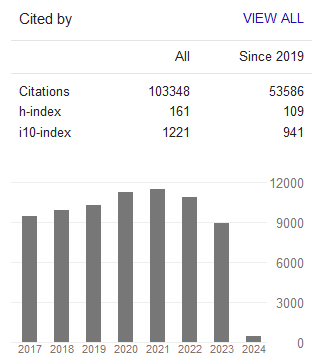Towards Effective Mitigation of the Digital Transformation and COVID-19 Risk on Unemployment in Mobile Operators in Egypt
- Ashraf Elsafty
- Ahmed Elzeftawy
Abstract
The new era of Digital transformation will Destroy many tasks and will create new owns, only certain tasks will depend on human skills which was defined by Carl Benedikt Frey and Michael A. Osborne, 2013 in which they called it, the “Engineering-Bottlenecks. Other tasks also defined by Katharina Dengler, Britta Matthes and Wiebke Paulus, 2014 in which they use the assignment of activities explained by Alexandra Spitz-Oener for non-automatable tasks and categorize them as: analytical non-routine tasks, interactive non-routine tasks. To mitigate the Risk of Automation and AI, there is a need for Upskilling and Reskilling the current workforce to perform the un-automatable tasks, created from the development of new products and services as well as performing new complementary tasks created to support the new automated systems.
The purpose of this paper is to examine whether the current Reskilling and Upskilling activities are organized in the right track to fill in the new created jobs, and whether they are making use of COVID-19, which gave a surplus of time by WFH and cutting the transportation time.
The conclusion of this research is 38% of the existing tasks, is under the risk of automation and 51% of the employees more than 40% of their current tasks are subject to automation. COVID-19 through WFH can provide more time for learning and development. Reskilling and Upskilling of the current workforce will not be effective unless it is correlated with the new created jobs from introducing new products and services or complementary jobs for newly introduced automated systems as the new created jobs are mainly SW developers.
The quantitative method used in this research is based on survey through questionnaires to a probability sample for 100 Engineers working in a technical department in Mobile Operator, and the Qualitative method is based on Structured interviews with a non-probability sample of Technology Managers, as Judgmental Sampling.
- Full Text:
 PDF
PDF
- DOI:10.5539/ijbm.v17n2p123
Journal Metrics
Google-based Impact Factor (2023): 0.86
h-index(2023): 152
i10-index(2023): 1168

Index
- Academic Journals Database
- AIDEA list (Italian Academy of Business Administration)
- ANVUR (Italian National Agency for the Evaluation of Universities and Research Institutes)
- Berkeley Library
- CNKI Scholar
- COPAC
- EBSCOhost
- Electronic Journals Library
- Elektronische Zeitschriftenbibliothek (EZB)
- EuroPub Database
- Excellence in Research for Australia (ERA)
- Genamics JournalSeek
- GETIT@YALE (Yale University Library)
- IBZ Online
- JournalTOCs
- Library and Archives Canada
- LOCKSS
- MIAR
- National Library of Australia
- Norwegian Centre for Research Data (NSD)
- PKP Open Archives Harvester
- Publons
- Qualis/CAPES
- RePEc
- ROAD
- Scilit
- SHERPA/RoMEO
- Standard Periodical Directory
- Universe Digital Library
- UoS Library
- WorldCat
- ZBW-German National Library of Economics
Contact
- Stephen LeeEditorial Assistant
- ijbm@ccsenet.org
